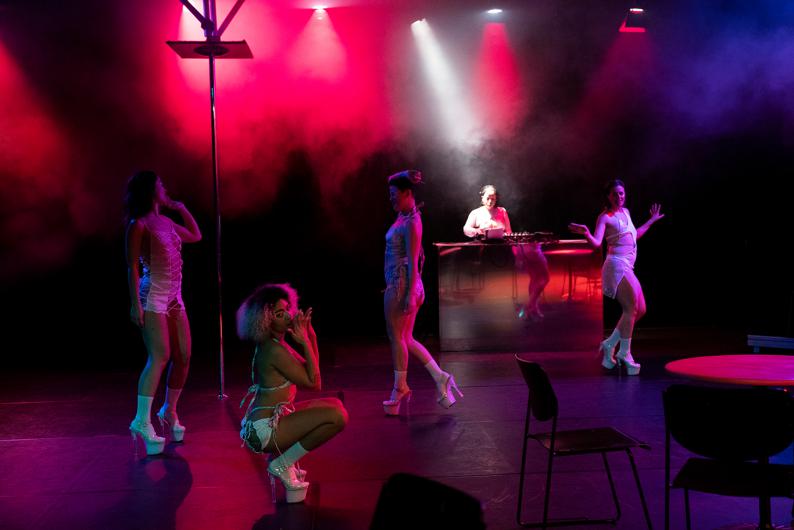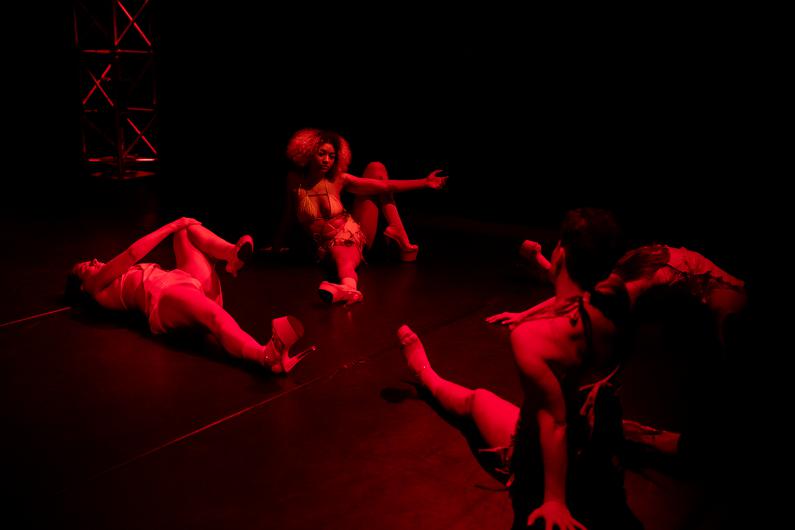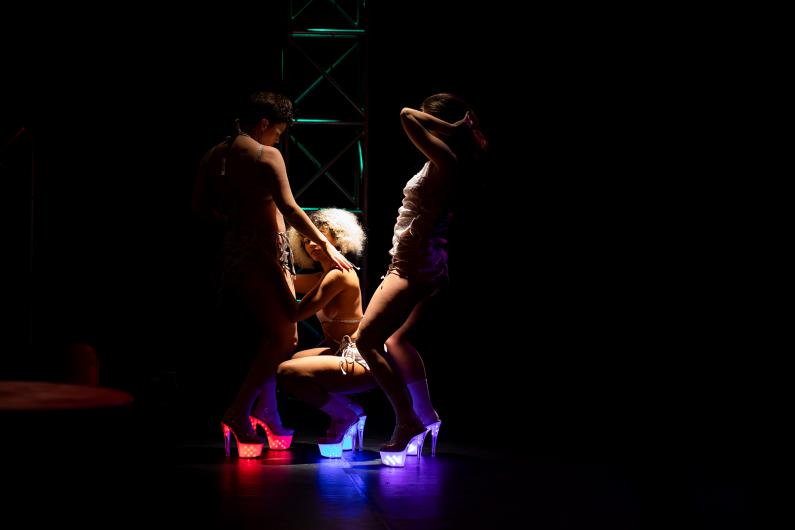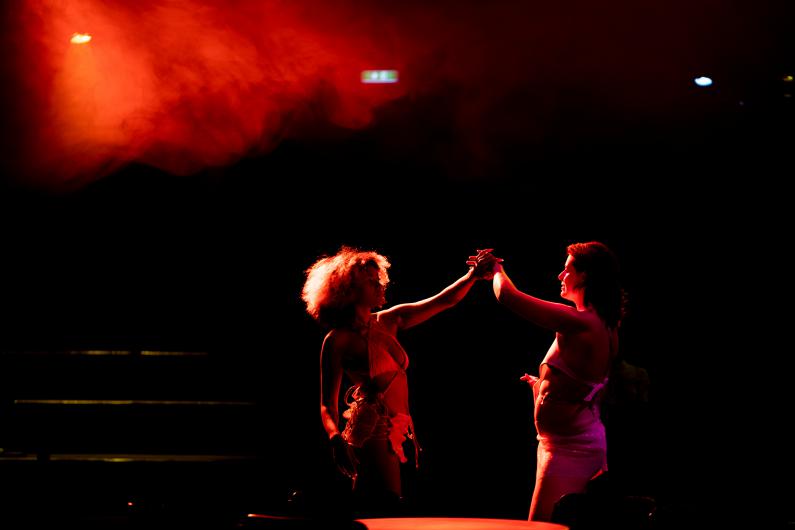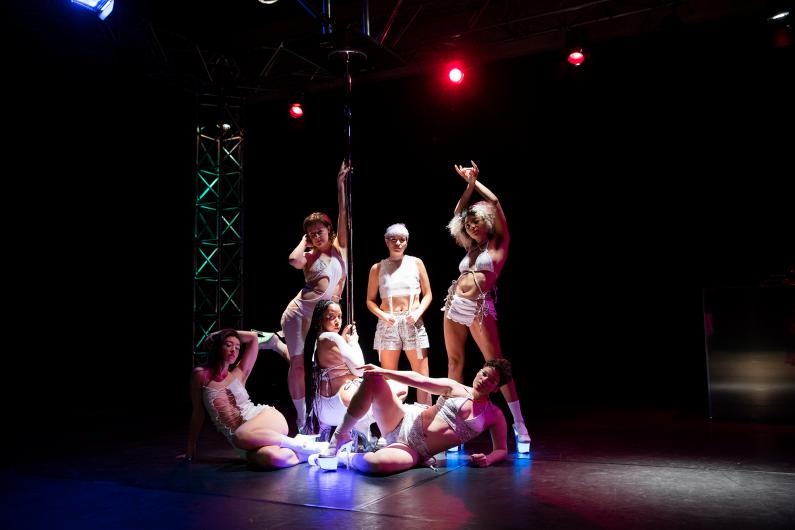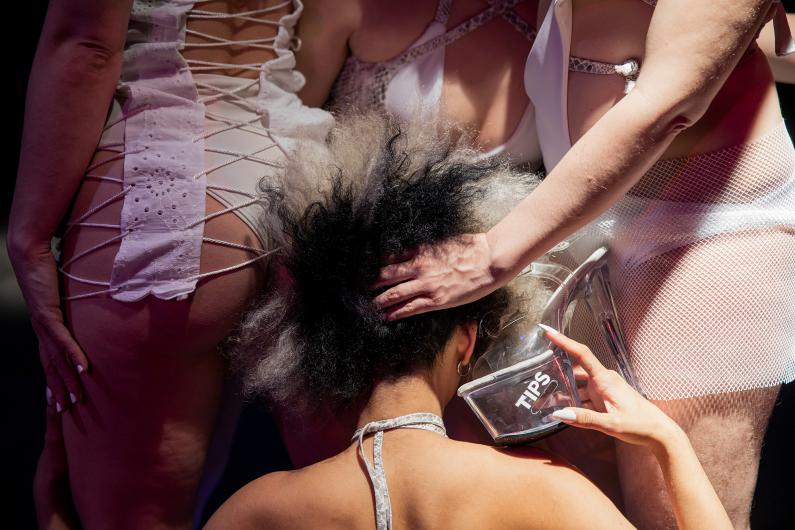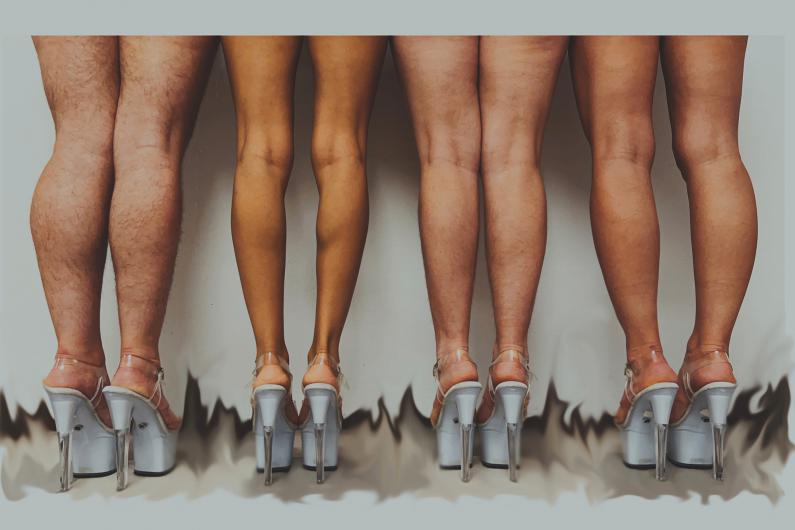mirabella paidamwoyo* dziruni
crying through my white mother’s tears
Allyship and anti-racist ways of life, what does that even mean? Und who actually does it? Based on personal experiences as a Black child of a white mother, mirabella paidamwoyo* dziruni takes to the stage with a small BiPoC team including three white performance artists – Asher O’Gorman, Claire Lefèvre and Veza Fernández – to expose dynamics of power and care between Black People and People of Colour and the dominant white society. This dance performance is less a personal narrative and more a profound reflection on how love alone is not enough when it comes to the fight for race equality.
In their piece, mirabella paidamwoyo* dziruni wants to confront the white world with its complacency. Who exerts power and is at the same time systematically oppressed? The white woman with her multi-faceted character ranging from the loving mother to the clueless mother, from the girlfriend coming along on a protest to the violent girlfriend, from the kind-hearted female colleague to the two-faced colleague: All this could be in you! A dialogue between the four protagonists on stage tackles questions on privilege, commitments, internalised and external trauma, differences and likenesses.
most rooms I enter are dominated by white existence
most rooms I enter are dominated by white fragility
most rooms I enter are dominated by white guilt
most rooms I enter are dominated by white opinions
most rooms I enter are dominated by white movements
most rooms I enter are dominated by white fear
most rooms I enter are dominated by white insecurity
most rooms I enter are dominated by white dominance
… and as a Black artist I wonder: How can I show you this experience in a dance performance?
In places dominated by whites, the Black experience is always subject to racist guidelines. Looking at the history we see that our generations, including all human experience, have much to unlearn:
so that the Black experience can be uplifted
so that the Black experience can be seen
so that the Black experience can be enhanced
so that the Black experience can be held gently
so that the Black experience can heal
(mirabella paidamwoyo* dziruni)
Empowerment and communal healing processes dominate mirabella paidamwoyo* dziruni’s artistic practice. Inspired by everyday experiences, they use and devise decolonial and anti-racist methods to occupy space in various public and private spaces with their non-binary, queer, Black aesthetic. Moving bodies, self-staging, and a continuous exchange of energies are the main components of their complex creations made to set unmissable signs of change.
The performance on March 11th will be followed by an artist talk, moderated by Enesi M.
Credits
Choreography, concept, performance mirabella paidamwoyo* dziruni Performance, choreography Asher O’Gorman, Claire Lefèvre, Veza Fernández DJ performance MTASA Music Production MSTEAZAH
A co-production of BABY, MOVE-IT, and brut Wien. With the kind support of the City of Vienna’s Department of Cultural Affairs.
Dates & Tickets
The performance on March 11th will be followed by an artist talk, moderated by Enesi M.
March 2023
Choose your price €22 / €16 / €11
Choose your price €22 / €16 / €11 / *Followed by an artist talk, moderated by Enesi M.
Choose your price €22 / €16 / €11
brut nordwest
Nordwestbahnstraße 8-10, 1200 Vienna
accessible
Downloads
imagetanz 2023 Programmfolder (PDF)
Evening programme crying through my white mother's tears (PDF)
